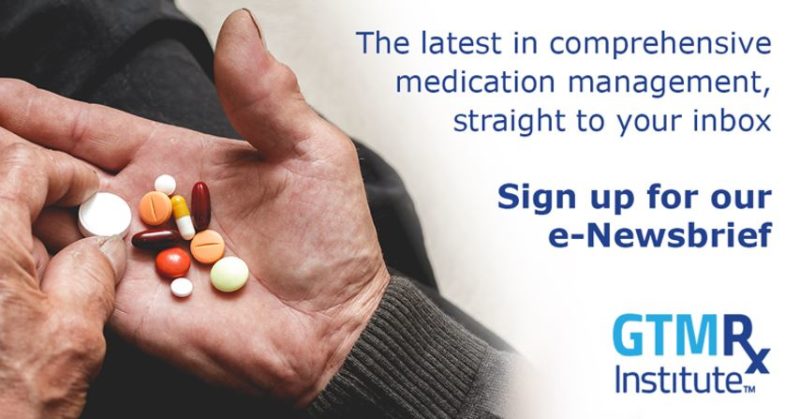Practice Transformation
The latest edition of the Personalized Medicine Coalition’s Personalized Medicine in Brief includes a reprint of remarks from the GTMRx / Bipartisan Policy Center Feb 6 keynote address by Gregory Downing, D.O., PhD, (page 10-13) “Get the Medications Right: Innovations in Team-Based Care.” He left listeners with the question, “Will we look back 10 years from now and say that we did the best we could to optimize the benefits of science for our patients?” That question relates to another important article in same issue: “Personalized Medicine in the Aftermath of COVID-19.” (Personalized Medicine in Brief)
CVS Health is opening a pop-up pharmacy in New Orleans, outside the Ernest M. Morial Convention Center; the center is serving as a 1,000-bed coronavirus facility to ease the burden on hospitals. The pharmacy is run by 26 full-time and part-time pharmacists and pharmacy technicians; they provide maintenance medication and offer counseling for COVID-19 patients who have been transferred to the convention center. It is not open to the general public. CVS Health has also opened two drive-thru COVID-19 testing sites in Georgia and Rhode Island. (Drug Store News)
Evidence & Innovation
The Red Cross is seeking people who are fully recovered from COVID-19 who may be able to donate plasma to help current patients. This “convalescent plasma” is being evaluated as treatment for patients seriously ill with COVID-19. Historically, convalescent plasma has been used as a potentially lifesaving treatment when new diseases or infections develop quickly, and no treatments or vaccines were available. (Red Cross)
Amazon is no longer selling certain coronavirus-related items to the general public. It says it wants to ensure that scarce inventory of medical supplies are available to hospitals and government organizations during the pandemic. It created a dedicated website to deal with such requests. (CNBC)
Digital transformation in health care has lagged behind other industries, but COVID-19 has fast-tracked adoption and scaling of virtual and AI tools. A Harvard Business Review article looks at how hospitals are using AI in the battle against COVID-19. One example: Physician researchers at Brigham and Women’s and Mass General hospitals are exploring the potential use of intelligent robots COVID-19 surge clinics and inpatient wards to perform certain tasks–such as obtaining vitals or delivering meds—in an effort to mitigate disease transmission. (HBR)
Policy Solutions
CMS has been hosting regular calls with clinicians, hospitals, other facilities, states and other stakeholders to keep them updated on CMS’s COVID-19 efforts. It has made call recordings and transcripts available to the public. (CMS)
Two drugs developed about 20 years ago to treat malaria—chloroquine and hydroxychloroquine—have been promoted by the Trump administration as “game changers”” in the battle against COVID-19. What do we know about these medications? Becker’s Hospital Review provides a primer. (Becker’s)
CMS has temporarily suspended several regulations in order to expand workforce flexibilities and allow providers to “perform work to the fullest extent of their licenses.” The agency announced last week that it will allow doctors to treat patients at rural hospitals via telehealth, even if they’re out-of-state. Among the other changes: Nurse practitioners will be allowed to perform certain exams for Medicare patients in skilled nursing facilities, and occupational therapists who work for home health agencies will be able to do initial assessments for homebound patients. (CMS announcement; Healthcare IT News)



